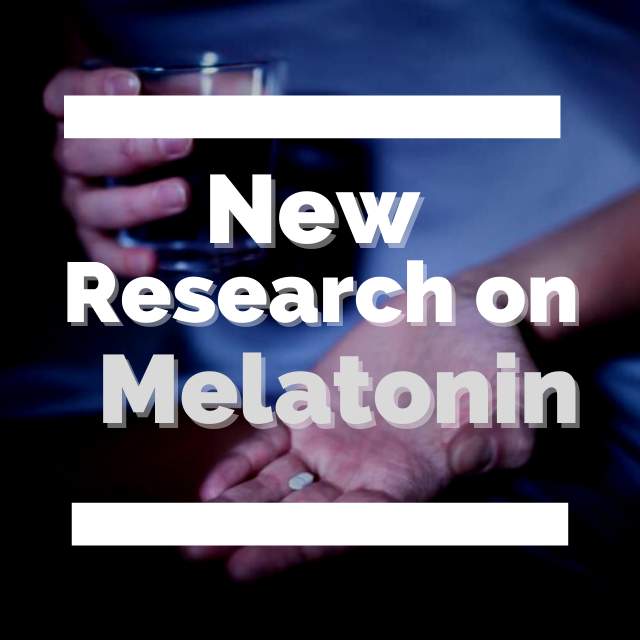When you hear the word melatonin, what’s the first thing that comes to mind?
For most people, the answer is sleep.
One of the most popular supplements in the world today is melatonin, with over 3 million adults in the U.S taking the sleep-promoting supplement regularly (2).
However, melatonin is much more than a supplement that helps you fall asleep. It’s actually a powerful hormone that is produced naturally in the human body and has far more benefits than simply functioning as a sleep aid.
New research published in October of 2020 in the Virus Research journal examined that effect that melatonin has on viruses.
The researchers concluded that melatonin plays a valuable role in the immune system’s response to a variety of different viruses including viruses that effect the respiratory system (1).
Some of the viruses that melatonin has shown promise in managing are viral hepatitis, Ebola, and potentially COVID-19.
Interestingly, melatonin is present in lower levels in elderly adults, which researchers believe is potentially one of the reasons older individuals are more susceptible to serious health ailments related to COVID-19.
Another proposed benefit that melatonin can have on the management of COVID-19 is suppression of inflammation. Following the initial infection with COVID-19, an inflammatory cascade takes place in the body, potentially doing long term damage to various organs including the lungs and heart. Reducing the inflammation may drastically improve long term health outcomes and recovery for infected patients.
While you can take a melatonin supplement to increase your body’s levels of melatonin, it’s important to focus on optimizing your body’s natural production of melatonin.
Several factors can inhibit your body’s natural production of melatonin including:
- Screen exposure at night (watching tv, using your cell phone)
- Stress
- Light pollution
- Poor diet
Aside from the beneficial effects that melatonin has on viruses, research shows that melatonin may also offer cancer protection. One study published in 2017 in the International Journal of Molecular Sciences referred to melatonin as a "full-service anti-cancer agent" due to the way in which melatonin is able to inhibit metastasis of cancer cells by limiting the entrance of cancer cells into the vascular system.
Another way in which melatonin may benefit cancer patients is by reducing toxicity of cancer treatments such as radiation. Researchers have found that melatonin may help protect against DNA damage that is caused by radiation which can lead to long-term damage of cells and organ systems.
In conclusion, melatonin may be a powerful tool as a preventative or an adjunct therapy that assists in the management of various illnesses including cancer and various viruses.
If you’re looking into supplementing with melatonin, contact us at the pharmacy to discuss which melatonin dose and delivery method will be most appropriate for you and your individual needs. Reach us at 908-658-4900.
*It's recommended that you consult with your doctor before beginning any nutraceutical protocol. This information is not intended to be utilized to treat or cure any health conditions.
References
- Bahrampour Juybari K, Pourhanifeh MH, Hosseinzadeh A, Hemati K, Mehrzadi S. Melatonin potentials against viral infections including COVID-19: Current evidence and new findings. Virus Res. 2020;287:198108. doi:10.1016/j.virusres.2020.198108
- Clarke TC, Black LI, Stussman BJ, Barnes PM, Nahin RL. Trends in the use of complementary health approaches among adults: United States, 2002-2012. Natl Health Stat Report. 2015;(79):1-16.
- Reiter RJ, Rosales-Corral SA, Tan DX, et al. Melatonin, a Full Service Anti-Cancer Agent: Inhibition of Initiation, Progression and Metastasis. Int J Mol Sci. 2017;18(4):843. Published 2017 Apr 17. doi:10.3390/ijms18040843


1 comment
moupay martins
I was heartbroken because I had a very small manhood , not nice to satisfy a woman, I had so many relationships cut off because of my situation, I have used so many products which i found online but none could offer me the help I searched for. I saw some comments about this specialist called Dr Moses Buba and decided to email him at buba.herbalmiraclemedicine@gmail.com so I decided to give his herbal product a try. i emailed him and he got back to me, he gave me some comforting words with his herbal pills for manhood Enlargement, Within 14days of it, i began to feel the enlargement of my manhood , " and now it just 2 weeks of using his products my manhood is about 9 inches longer and i am so happy, contact DR Moses Buba now via email buba.herbalmiraclemmedicine@gmail.com or his WhatsApp number +2349060529305 . contact him through his Facebook page : https://www.facebook.com/profile.php?id=61559577240930 may God reward you for your good work . For more info i can help to explain the medication +44 7375301397
HE ALSO RENDERED THE FOLLOWING ……..1. BRING YOUR EX BACK……….. 2. LOTTERY SPELL……… 3. PREGNANCY SPELL ……….4. WEAK ERECTION …………5. POOR EJACULATION……….